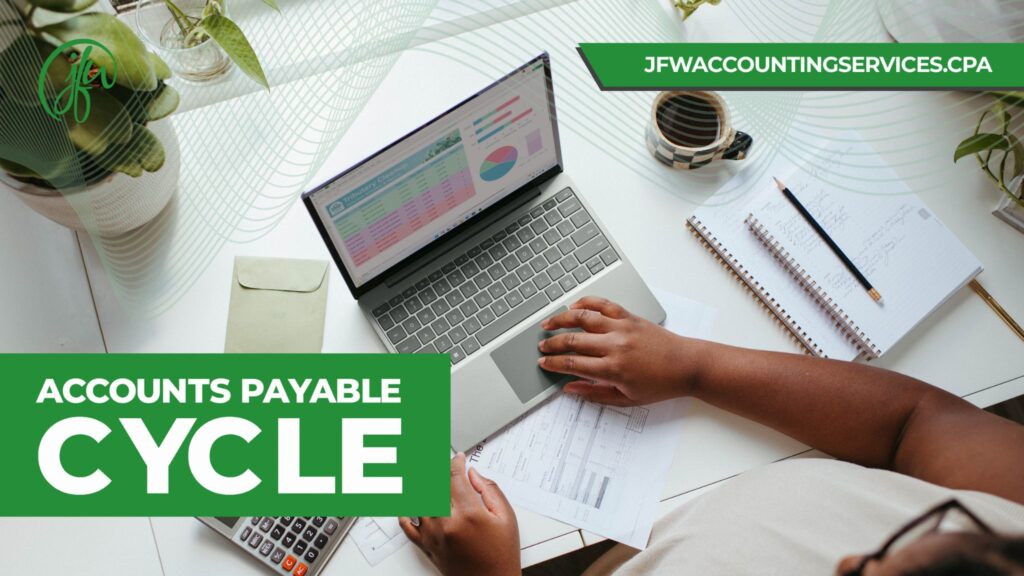The accounts payable (AP) cycle is the process of tracking and paying bills for goods and services that a nonprofit organization has purchased. It is an important part of a nonprofit’s financial management system, as it helps to ensure that the organization is paying its bills on time and in full.
In this article, we’ll explore the key steps involved in the accounts payable cycle for nonprofits, along with best practices to help ensure its smooth functioning.
As a nonprofit organization, managing your finances can be a complex and time-consuming task. One important aspect of financial management is the accounts payable cycle. This cycle includes all the steps a nonprofit takes to pay its vendors and suppliers for goods and services.
What Is The Cycle of the Accounts Payable Process?
The accounts payable process refers to the process of recording and managing payments to vendors and suppliers for goods or services received by the organization. The accounts payable cycle comprises several steps that involve recording, reviewing, approving, and paying invoices, as well as reconciling accounts to ensure accuracy and completeness.
The AP cycle typically includes the following steps:
- Receiving invoices: When a nonprofit purchases goods or services, it will receive an invoice from the vendor. The invoice will list the items purchased, the quantity, the price, and the due date.
- Approving invoices: Once an invoice is received, it must be approved by an authorized person before it can be paid. The approval process helps to ensure that the invoice is legitimate and that the payment is within budget.
- Recording invoices in the accounting system: Once an invoice has been approved, it must be recorded in the nonprofit’s accounting system. This process creates a record of the purchase and helps to track the organization’s spending.
- Paying invoices: When the invoice is due, the nonprofit will pay the vendor. The payment can be made by check, electronic funds transfer (EFT), or credit card.
- Reconciling accounts: At the end of each month, the nonprofit will reconcile its accounts payable. This process involves comparing the total amount of invoices that have been approved to the total amount of payments that have been made. This helps to ensure that all invoices have been paid and that there are no errors in the accounting system.
The AP cycle is an important part of a nonprofit’s financial management system. By following these steps, nonprofits can ensure that they are paying their bills on time and in full and that their spending is tracked and controlled.
What Is The End-to-end Accounts Payable Cycle?
The end-to-end accounts payable cycle encompasses all the steps involved in managing the payment of invoices to vendors or suppliers. It starts with recording invoices and ends with reconciling accounts to ensure that all payments have been accurately recorded and accounted for. The end-to-end accounts payable cycle also includes various other steps such as reviewing invoices, approving invoices, and issuing payments.
What Is The Purpose of Accounts Payable?
The purpose of accounts payable is to ensure that vendors and suppliers are paid accurately and on time for goods or services received by the organization. It is also essential for maintaining accurate financial records, managing cash flow, and fulfilling financial obligations. Effective accounts payable management is crucial for any organization to ensure that it maintains good relationships with its vendors and suppliers and avoids any negative impact on its creditworthiness or reputation.
Best Practices for Nonprofit Accounts Payable Management
To ensure the smooth functioning of the accounts payable cycle, nonprofits should implement best practices for AP management. Some key practices include:
Here are some tips for managing your nonprofit’s accounts payable cycle:
- Set up a system for tracking invoices: This could be a manual system or an automated system. The important thing is to have a system in place so that you can track all of your invoices and make sure that they are paid on time.
- Establish a payment schedule: Decide how often you will pay your bills. This could be weekly, biweekly, or monthly. Once you have established a schedule, stick to it.
- Create a budget for your AP expenses: This will help you to track your spending and make sure that you are not overspending.
- Use technology: There are a number of software programs that can help you to manage your AP cycle more efficiently. These programs can help you to track invoices, create budgets, and send payments.
- Get help from a professional: If you are struggling to manage your AP cycle, you may want to consider hiring a professional accountant or bookkeeper. They can help you to set up a system and make sure that it is running smoothly.
Benefits of a Well-Managed Accounts Payable Cycle
There are many benefits to having a well-managed accounts payable cycle. These benefits include:
- Improved cash flow: By paying bills on time, nonprofits can improve their cash flow and avoid late fees.
- Reduced risk of fraud: A well-managed AP cycle can help to reduce the risk of fraud by ensuring that all invoices are properly approved and recorded.
- Improved accuracy: An organized AP cycle can help to improve the accuracy of the nonprofit’s financial statements.
- Improved compliance: An adequate AP cycle can help nonprofits to comply with accounting and financial reporting regulations.
Next Steps
The accounts payable process involves recording, reviewing, approving, and paying invoices, as well as reconciling accounts to ensure accuracy and completeness. It is a critical component of an organization’s financial management system, enabling them to manage their cash flow, maintain accurate records, and fulfill their financial obligations in a timely manner.
JFW Accounting Services specializes in virtual accounting and advisory services for nonprofit organizations. Our expert team can help your nonprofit manage its accounts payable cycle, ensuring that your bills are paid on time and in full, and your financial records are accurate and compliant with regulations.
With our services, you can improve your cash flow, reduce the risk of fraud, and optimize your financial management system. Contact us today to learn more.

Jo-Anne Williams Barnes, is a Certified Public Accountant (CPA) and Chartered Global Management Accountant (CGMA) holding a Master’s of Science in Accounting (MSA) and a Master’s in Business Administration (MBA). Additionally, she holds a Bachelor of Science (BS) in Accounting from the University of Baltimore and is a seasoned accounting professional with several years of experience in the field of managing financial records for non-profits, small, medium, and large businesses. Jo-Anne is a certified Sage Intacct Accounting and Implementation Specialist, a certified QuickBooks ProAdvisor, an AICPA Not-for-Profit Certificate II holder, and Standard for Excellence Licensed Consultant. Additionally, Jo-Anne is a member of American Institute of Certified Public Accountant (AICPA), Maryland Association of Certified Public Accountants (MACPA), and Greater Washington Society of Certified Public Accountants (GWSCPA) where she continues to keep abreast on the latest industry trends and changes.

